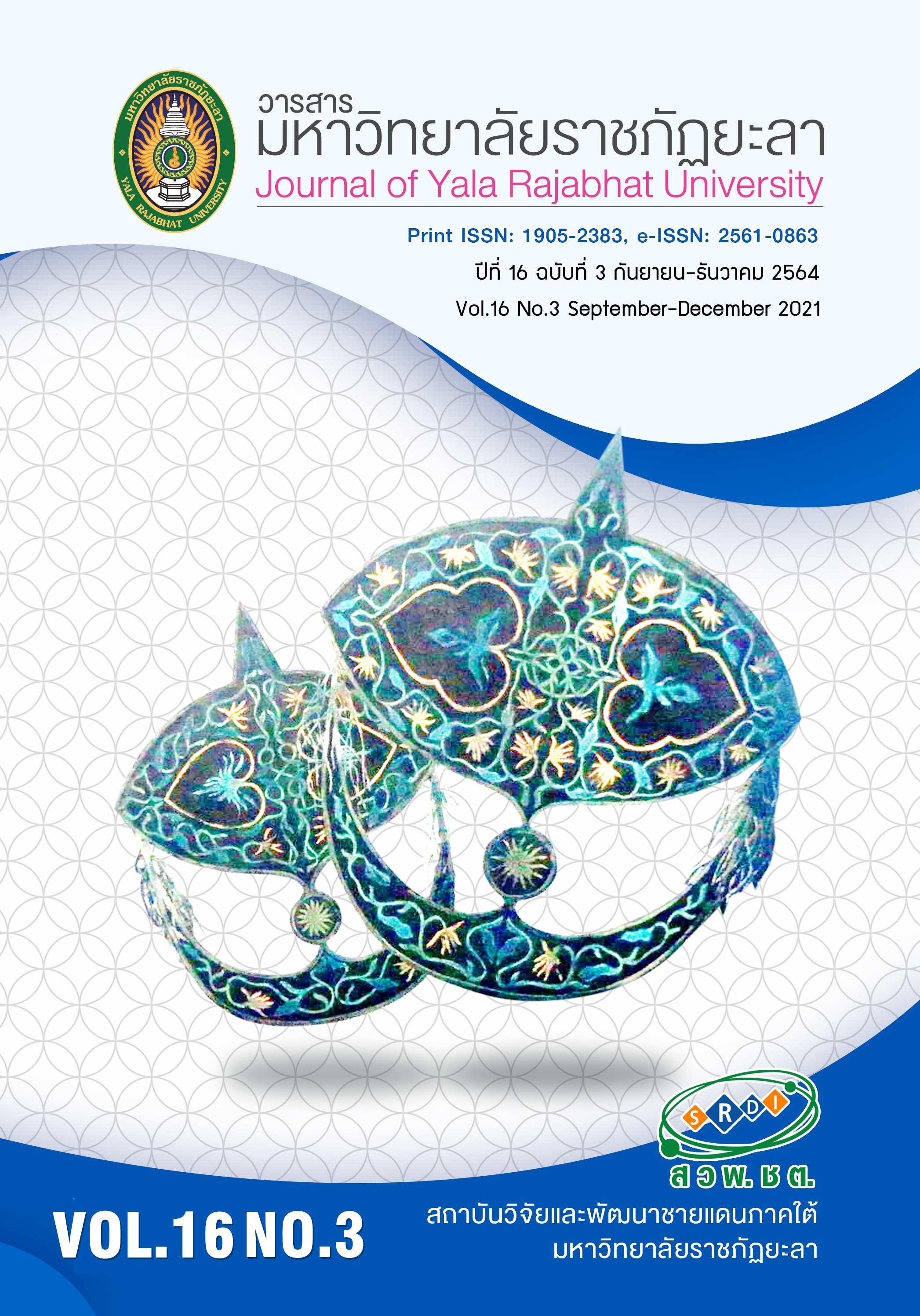แนวทางการพัฒนาคุณภาพเยาวชนพลเมือง : การเปรียบเทียบกรอบความคิดแบบเติบโตของประเทศไทย สาธารณรัฐเอสโตเนีย และสิงคโปร์
Main Article Content
บทคัดย่อ
บทความวิชาการนี้มีวัตถุประสงค์เพื่อเปรียบเทียบกรอบความคิดแบบเติบโตของแนวทางการพัฒนาคุณภาพเยาวชนพลเมืองของประเทศไทย สาธารณรัฐเอสโตเนีย และสิงคโปร์ โดยใช้การสังเคราะห์ข้อมูลเชิงคุณภาพจากเอกสารข้อมูลเชิงนโยบายของภาครัฐและมีการเผยแพร่สู่สาธารณะ 3 แหล่ง ได้แก่ 1) แผนพัฒนาเยาวชนแห่งชาติของสาธารณรัฐเอสโตเนีย ปี 2014-2020 2) เอกสารวิจัยของสภาเยาวชนแห่งชาติสิงคโปร์และแผนปฏิบัติการเยาวชนสิงคโปร์ และ 3) รายงานการศึกษาการส่งเสริมกระบวนการทางความคิดเด็กและเยาวชนสู่ประเทศไทย 4.0 โดยสังเคราะห์ในประเด็นแนวทางเชิงนโยบาย วิธีการพัฒนาเยาวชนเพื่อเสริมสร้างความเป็นพลเมือง และแนวทางการส่งเสริมกรอบความคิดแบบเติบโต ผลการศึกษาพบว่าในสาธารณรัฐเอสโตเนีย สิงคโปร์ และไทย มีความคล้ายคลึงกันในด้านวิธีการกำหนดนโยบายการพัฒนาเยาวชนและการสนับสนุนงบประมาณการทำงานให้กับเยาวชนโดยตรงผ่านช่องทางต่าง ๆ แต่มีความแตกต่างกันในด้านแนวคิดและวิธีการทำงานพัฒนาเยาวชนของหน่วยงานที่เกี่ยวข้อง การสร้างการมีส่วนร่วมของเยาวชน และการสร้างนิเวศวัฒนธรรมการเรียนรู้สำหรับเยาวชนที่สอดคล้องกับกรอบความคิดแบบเติบโต
Article Details
บทความ ข้อมูล เนื้อหา รูปภาพ ฯลฯ ที่ได้รับการเผยแพร่ในวารสารมหาวิทยาลัยราชภัฏยะลานี้ ถือเป็นลิขสิทธิ์ของวารสารมหาวิทยาลัยราชภัฏยะลา หากบุคคลหรือหน่วยงานใดต้องการนำทั้งหมดหรือส่วนหนึ่งส่วนใดไปเผยแพร่ต่อหรือกระทำการใดๆ จะต้องได้รับอนุญาตเป็นลายลักษณ์อักษรจากวารสารมหาวิทยาลัยราชภัฏยะลาก่อนเท่านั้น
เอกสารอ้างอิง
Andersen, S. & Nielsen, H. (2016). Reading intervention with a growth mindset approach improves children’s skills. Proceedings of the National Academy of Sciences, 113(43), 12111–12113.
Betsy Ng. (2018). The Neuroscience of Growth Mindset and Intrinsic Motivation.Brain Sci, 8(2), 6-10.
Blackwell, L. A., Trzesniewski, K. H., & Dweck, C. S. (2007). Theories of intelligence and achievement across the junior high school transition: A longitudinal study and an intervention. Child Development, 78(1), 246-263.
Brown. B. C. (2005). Theory and practice of integral sustainable development. Part 2: Values, developmental
levels, and natural design. AQAL Journal of Integral Theory and Practice, 1(2), 2-39.
Chitradub, S., Plubjeen, K., Arpanurak, P. Chumphong, C. (2019). The Study of Thai Child and Youth Mindset Goes Forward to Thailand 4.0. The Convention of National Board of Committee in Advancement of Child and Youth Development, March 29, 2019. Bangkok: Ministry of Education, 24-27. (in Thai)
Dweck, C. S. (2016). Mindset: The New Psychology of Success. How We Can Learn to Fulfill Our Potential. New York, NY: Ballantine Books.
Europeancommission. (2017). Youth policies in Estonia 2017 [online]. Retrieved February 14, 2020 from https://eacea.ec.europa.eu/national-policies/en/content/youthwiki/13-national-youth-strategy-Estonia.
Ministry of Culture, Community and Youth. (n.p.). Spark the next SG plan [online]. Retrieved February 22, 2020
from https://vision2025.youthactionplan.sg/index.html?noAnim=true.
Molden, D. C., & Dweck, C. S. (2006). Finding" meaning" in psychology: a lay theories approach to self-regulation, social perception, and social development. American Psychologist, 61(3), 192.
National Board of Committee in Advancement of Child and Youth Development. (2018). National Child and Youth Development Plan 2017-2024 (2nd Ed.). Bangkok: National Board of Committee in Advancement of Child and Youth Development. (in Thai)
National Statistic Office. (2019). Number of populations from registration by age, sex and province: 2019 [online]. Retrieved July 4, 2020 from: http://statbbi.nso.go.th/staticreport/Page/sector/TH/report/sector_01_11101_TH_.xlsx
National Youth Council Singapore. (2018). The State of Youth in Singapore 2018 Reseach Publication. National Youth Council. Singapore.
OECD. (2019). PISA 2018 Results (Volume I): What Students Know and Can Do. PISA, OECD Publishing, Paris.
Verke & EYWC. (2019). Digitalisation and Youth Work. National Centre of Expertise for Digital Youth Work in Finland and Government Agency for youth policy and youth work development in Estonia. Grano: Helsinki.
Westheimer, J., & Kahne, J. (2004). What Kind of Citizen? The Politics of Educating for Democracy. American Educational Research Journal, 41(2), 237–269.


